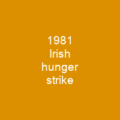What Exactly Is a Prisoner Exchange?
Imagine two opposing forces in a heated conflict, each holding the other’s captives. A prisoner exchange or swap is like a delicate dance where both sides agree to release their prisoners, sometimes even including those who have passed away. It’s a complex negotiation that can be as intricate as solving a Rubik’s Cube blindfolded.
The Role of the Geneva Conventions
Now, let’s talk about the Geneva Conventions. These are like the rules of the game in international conflicts. They protect prisoners who are ill or disabled under certain conditions, ensuring they receive proper care and treatment. It’s a bit like having a referee to ensure fair play during a match.
A Historical Perspective: World War II
During World War II, the International Red Cross played a pivotal role in facilitating these exchanges. They were like the referees on the field, ensuring that both sides adhered to the rules and agreements made during prisoner swaps. Even in conflicts where violence was rampant, such as Yugoslavia’s Second World War, negotiations over prisoner releases led to agreements on neutral zones for swapping prisoners until 1945.
These exchanges were not just about freeing individuals; they were about saving thousands of lives. It’s like a lifeline thrown into the tumultuous sea of war, offering hope and humanity amidst chaos.

Why Are Prisoner Exchanges Important?
Prisoner exchanges are crucial because they humanize the conflict. It’s like a bridge connecting two opposing sides, allowing them to see each other as individuals rather than just enemies. These exchanges can lead to better understanding and potentially pave the way for peace.
The Future of Prisoner Exchanges
As we move forward, it’s essential that these exchanges continue to be governed by international laws and conventions. They serve as a reminder that even in the darkest times, there is still room for humanity and compassion. It’s like finding a glimmer of light in the midst of darkness.
The Significance of Prisoner Exchanges
Prisoner exchanges are more than just a transaction; they are a symbol of hope and a commitment to human rights. They remind us that even in the most challenging times, there is always a way forward, a path towards peace.
In conclusion, prisoner exchanges play a vital role in conflict resolution and humanitarian efforts. They offer a beacon of light during dark times, reminding us of our shared humanity. So, let’s continue to support these exchanges and strive for a world where such agreements are not just an option but a necessity.
You want to know more about Prisoner exchange?
This page is based on the article Prisoner exchange published in Wikipedia (retrieved on November 27, 2024) and was automatically summarized using artificial intelligence.






